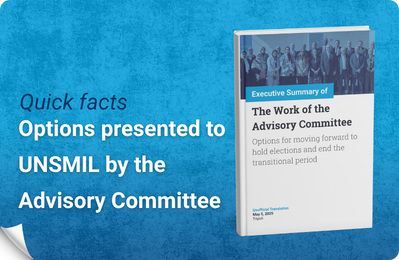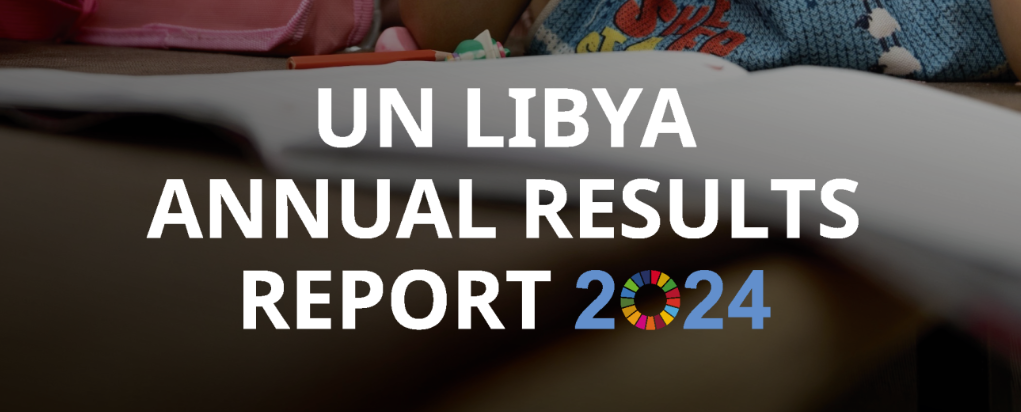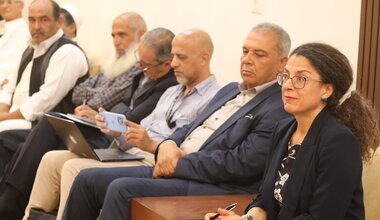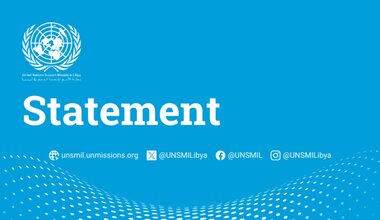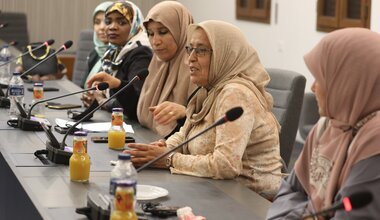Libyan Women Conclude Three-Day Parallel Workshops on Negotiation and Conflict Resolution and Woman’s Right and Political Participation
Representatives of Libyan women groups and women activists, from diverse backgrounds representing all areas of Libya, concluded today two parallel workshops.
Divided into two groups, the participants attended two separate training sessions on Negotiations and Conflict Resolution as well as Women’s Rights and Political Participations. The training sessions took place in Monastire, Tunisia, from 01 to 03 June 2016, and were organized by the United Nations Support Mission in Libya (UNSMIL) and UN Women, with funding provided by the Swiss Government.
The Negotiations and Conflict Resolution workshop aimed at cultivating the skills of Libyan women, some of whom are already engaged in reconciliation initiatives in their communities, and to enable the participants to engage in mediation to resolve the conflict in their constituencies. Sharing experiences and discussing conflict resolutions practices, the participants practised using existing scenarios of conflicts in Libya.
Fawziya Saleh Al-Harari, a member of Al-Hassan Foundation for Charity and a member of Social Affairs of West Zawiya Municipality, spoke about a number of initiatives led by Libyan women under the leadership of the head of West Zawiya Municipalities’ Social Affairs, Naeema Salameh. In addition to several humanitarian initiatives in the region of West Zawiya, Al-Harari disclosed reconciliation initiatives that included reconciliation between Zintan and Mashashiya, the release of detainees which led to the freedom for 65 people, and the ongoing mediation efforts to open the coastal road between Zawiya and Misrata.
Women’s Rights and Political Participation workshop focused on the important role of women in the political process, especially in the transitional period. During this workshop, the participants received training on the international human rights laws, including the laws that grant the women equal opportunities to participate in political life.
Rouqiya Al-Ali, a Captain in the customs and a member of Tebu National Gathering, said: “Women are the most affected during the conflict. Their suffering and rights are ignored and neglected in the political transitional period.”
She added: “This training is very important for me, as I come from a region inhabited by ethnic components and witness frequent tribal conflicts. Also, it is because I have a strong believe that women’s participation in political life can make a difference.”
Trainer Joumanah Mar’ee, head of the Beirut office of the Arab Institute for Human Rights, said this a great opportunity for the Libyan women to strengthen their capacity and enhance their self-confidence in order to be more vocal and more engaged in the political process and ensure better participation in the political life. “Woman is peace, and from the woman emanates the peace; she is the most vulnerable and most affected during the conflicts; but, she is the most powerful in building the bridges,” said Mar’ee.
Concluding the three-day workshops, both Libyan women groups agreed to share the skills they acquired with their counterparts. They developed action plans to promote women' rights and participation, including the importance of the establishment of the Women’s Support and Empowerment Unit as part of the Libyan Political Agreement.
 United Nations Peacekeeping
United Nations Peacekeeping UN
UN















